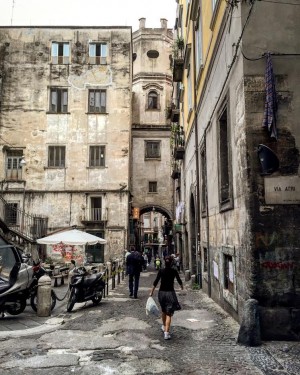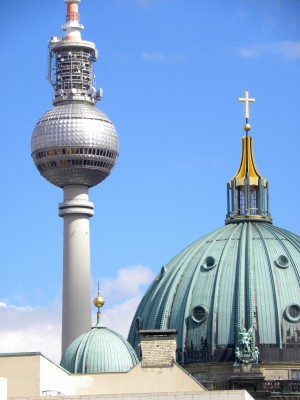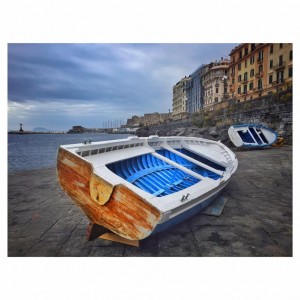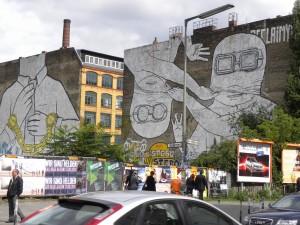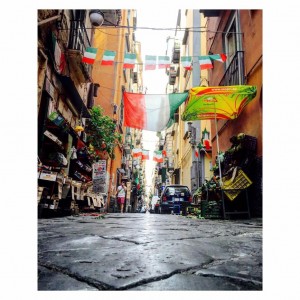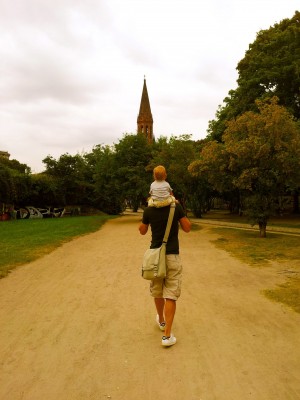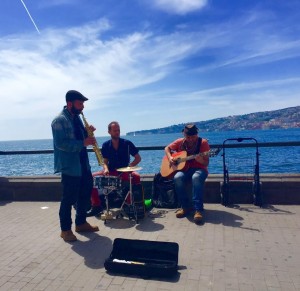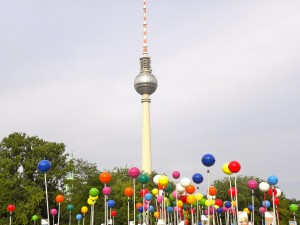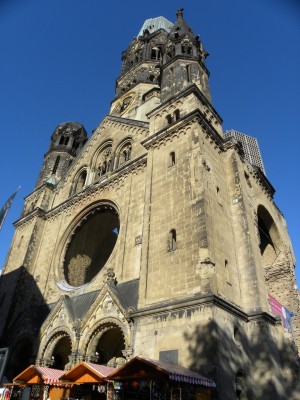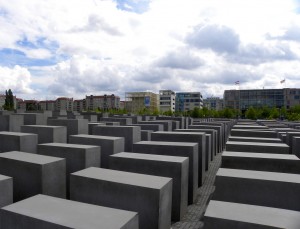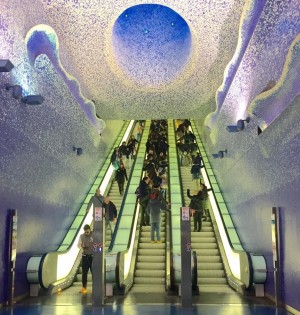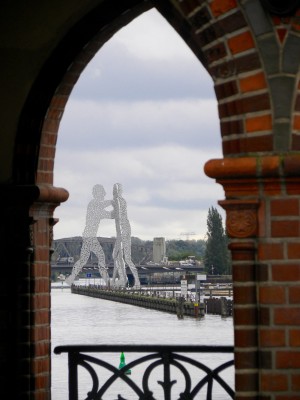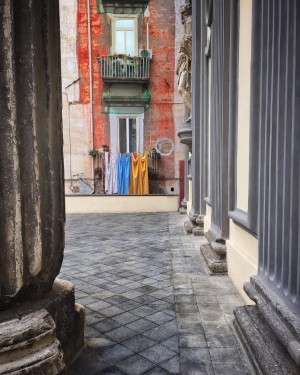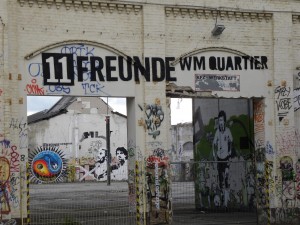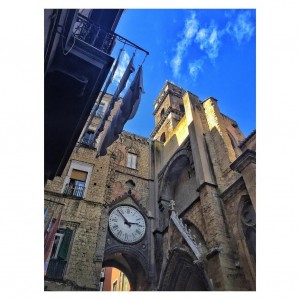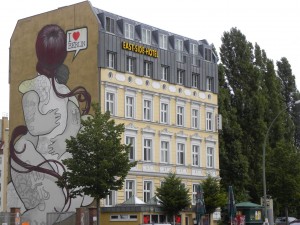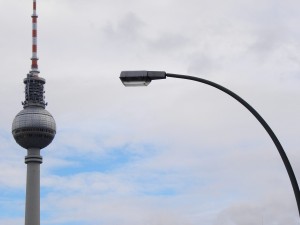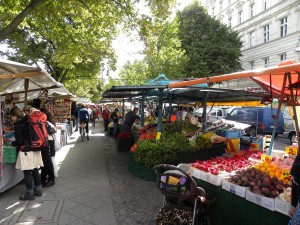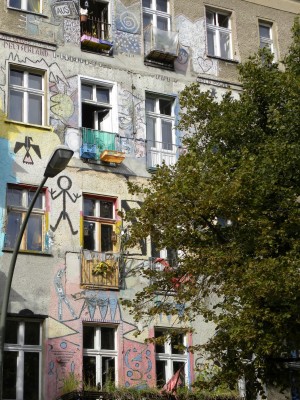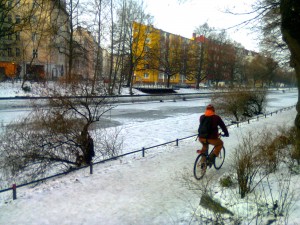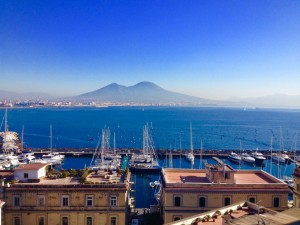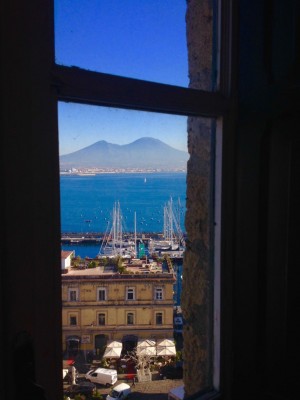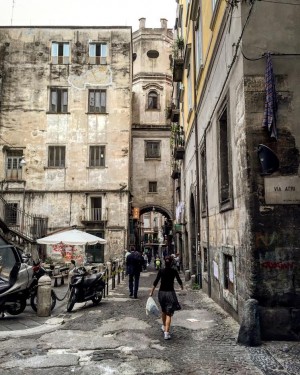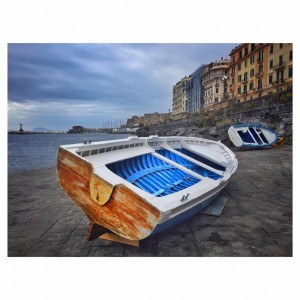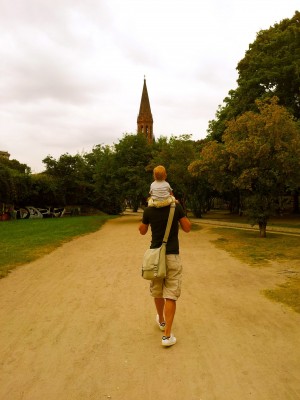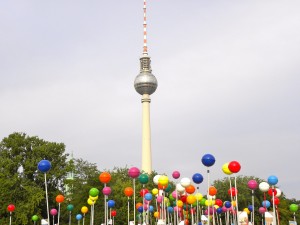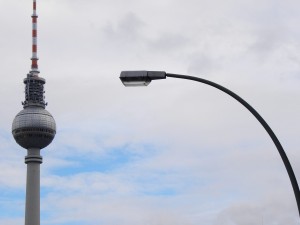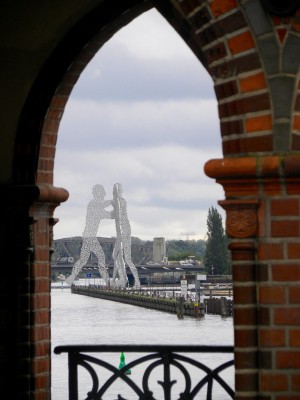For the Italian version, please, scroll down.
For those, like myself, who were born and lived in the South of Italy, Berlin may seem even further away than it really is geographically.
As well as many immediate differences, such as the climate, the food and the landscape (the view from the top of Berlin certainly does not recall the bay of Naples the Vesuvius in the background nor the rooftops of Rome viewed from the Gianicolo at sunset), there are also some profound differences – especially cultural ones – which you are forced to confront and deal with.
Clichés and distinctions between German and Italian
Germans, for example, are generally more closed and reserved (sometimes even cold) than Italians who, on the contrary, are more friendly and sociable, but sometimes even raucous and intrusive. This, which may seem like a superficial and unimportant point, becomes a decisive difference when we become close to Germans or when we have relationships in which the different ways of behaving, of understanding and interpreting words and gestures can give rise to misunderstandings or confusion.
Germans – of whom more than 60% are Protestants or non religious – respect others’ freedom and life choices and, consequently, are less influenced than Italians who (despite being convinced otherwise), judge people on many levels from the way they dress to their way of life and due to their own fear of being criticized, in turn, give great importance to appearances, sometimes forgetting what really matters.
The Germans are more inclined to observe the rules, which is a positive thing, but on the other hand they are also much less flexible than the Italians, almost bordering on insensitive and indifferent.
One could continue with a long list of more or less well-founded clichés or with a detailed list of distinctions between the two, (distinctions) which, from time to time, could be explained by a historical, religious, climatic and other reasons.
But so far, nothing new.
The real surprise (having now lived for years, not just in any German city, but Berlin) is discovering that the culture shock that you expect when moving here from cities like Rome, Naples and Palermo, is not so shocking in the end.
If this statement seems a bit risky, after more careful analysis it no longer seems so far-fetched.
An ideal place to live
I, who am not from any city in southern Italy, but from Naples – a place which, for better or for worse, is always in the eye of the storm and in the limelight – find that the German capital is a perfect compromise between the efficiency of the North and a certain southern laxity.
Despite the macroscopic distinctions due to size, history, the respective political role and the consequent importance and influence in Europe, there are several similarities between the two cities that reveal Berlin to be less German than one might imagine.
Although to different extents (and for different reasons), both cities do not always enjoy a good reputation within their respective countries. They are simultaneously admired and mistreated, envied and vilified, coveted and avoided. In short, they are cities with strong characteristics and great contrasts, crossed by vibrant energies and passions, which rarely leave those who visit them for the first time with a sense of indifference.
Berlin is the poor city of Germany. It is not the industrial, economic or financial center of the country, it is not particularly clean to be a city considering it’s in Northern Europe, nor is it particularly well organized (at least many neighborhoods in the center are not), the unemployment rate is noticeably higher than the enviable German average and it is distinguished by a certain ‚relaxedness‘ that makes it the subject of ironic and sharp criticism from other Germans. It is famous for its bohemian lifestyle (which was characterized as much by the last century as it is today), abandons itself to its vices and follows them without thinking too much about tomorrow.
These are all characteristics, which in my opinion make Berlin an ideal place to live. It is not a bourgeois city, plastered and formal, it is, on the contrary, young and dynamic, with excellent culture and, in spite of the gentrification process that affects an increasingly large part of the metropolitan area, it is still quite cheap.
Two cities where is still possible to cultivate their dreams
Even though Naples is different in terms of its colors, its history, the character of its inhabitants and its stones, for the sea that bathes it, for the ancient palaces and for its churches, for the theatricality of its people, for the regal past and for the very different aspect that it has now, it shares the same attitude of disregard and the challenge of everyday life with the German capital, that hedonistic attitude, that same tendency to „avoid fatigue“ and to enjoy the present (Goethe said “I find in this people, a lively and spirited industry—not to become rich, but to live free from care.“), The two cities share their common sense of creativity – Berlin being more experimental, whilst Naples is more about survival – and the proliferation of artists and musicians, who find the right recognition and the best working conditions in the German capital. Meanwhile in Naples they find the right inspiration thanks to the absence of alternatives.
Despite the known and lesser known problems, despite who offends and who defends the city no matter what, despite the indubitable and striking beauty of the city and its newfound popularity that sees improuving the tourism as never before and has awakened the interest of directors, designers and producers, we must recognize that, just as Berlin allows anyone to cultivate their dreams, to follow his own vocations and inclinations, in the same way, despite its difficulties and the many contradictions, Naples allows anyone to enjoy beauty.
If Klaus Wowereit described Berlin as „Arm, aber sexy“ (poor but sexy), confronted with the beauty of Naples, Goethe wrote: „Siehe Neapel und stirb!“ (See Naples and die!).
Italian version
Per chi, come me, è nato e vissuto al Sud d’Italia, Berlino può sembrare ancor più distante di quanto non lo sia geograficamente.
A partire da una serie di ovvietà, come il clima, il cibo e il panorama (la vista dall’alto di Berlino non ricorda certo il golfo di Napoli con il Vesuvio sullo sfondo né i tetti di Roma visti dal Gianicolo al tramonto), ci sono profonde differenze – soprattutto culturali – con le quali misurarsi e fare i conti.
Luoghi comuni e differenze tra tedeschi e italiani
I tedeschi, per esempio, sono generalmente più chiusi e riservati (qualche volta persino freddi) degli italiani che, al contrario, sono più solari e socievoli ma talvolta anche chiassosi e invadenti. Questa, che può sembrare una considerazione un po’ superficiale e priva di importanza, diventa una differenza determinante quando con i tedeschi si vive a stretto contatto o si hanno relazioni in cui i diversi modi di comportarsi, di intendere e d’interpretare parole e gesti possono originare equivoci o incomprensioni.
I tedeschi – per più del 60% protestanti o non religiosi – rispettano maggiormente la libertà e le scelte di vita altrui e, di conseguenza, sono meno condizionati di quanto non lo siano gli italiani che, sebbene siano convinti del contrario, giudicano gli altri a partire dal modo di vestirsi a quello di vivere e, proprio per il timore di essere a loro volta criticati, danno molta importanza alle apparenze dimenticando, in alcuni casi, ciò che conta realmente.
I tedeschi sono più inclini a osservare le regole, il che rappresenta una cosa positiva, ma di contro sono anche molto meno elastici degli italiani, tanto da rasentare, talvolta, insensibilità e indifferenza.
Da qui, si potrebbe continuare con una lunga lista di luoghi comuni più o meno fondati o con un dettagliato elenco di distinzioni tra i due popoli che troverebbero, di volta in volta, una spiegazione in ragioni storiche, religiose, climatiche e altro ancora.
Ma fin qui, nulla di nuovo.
La vera sorpresa, vivendo ormai da anni non in una qualsiasi città della Germania bensì a Berlino, è l’aver scoperto che lo shock culturale che ci si aspetta venendo da città come Roma, Napoli e Palermo, non è per niente sconvolgente.
Se quest’affermazione potrebbe sembrare azzardata, a una più attenta analisi non risulterà più così inverosimile.
Un posto ideale in cui vivere
Io che sono non di una qualsiasi città del Sud Italia, ma di Napoli – un luogo che, nel bene o nel male, è sempre nell’occhio del ciclone e alla ribalta della cronaca -, trovo che la capitale tedesca sia un perfetto compromesso tra l’efficienza del Nord e un certo lassismo del Sud.
Con le debite macroscopiche distinzioni dovute alle dimensioni, alla storia, al rispettivo ruolo politico e alla conseguente importanza e influenza in Europa, ci sono svariate similitudini tra le due città che rivelano Berlino essere meno ‘tedesca’ di quanto si potrebbe pensare.
Anche se in misura e per ragioni diverse, entrambe non godono ‘sempre’ di buona fama nel rispettivo Paese. Sono contemporaneamente ammirate e bistrattate, invidiate e vilipese, ambite ed evitate. Insomma, sono città dalle forti caratteristiche e dai grandi contrasti, attraversate da energie e passioni vibranti, che difficilmente lasciano indifferente chi le visita per la prima volta.
Berlino è la città ‘povera’ della Germania. Non ne è il polo industriale, economico o finanziario, non è particolarmente pulita per essere una città del Nord Europa né particolarmente ordinata (o almeno non lo sono molti quartieri del centro), il tasso di disoccupazione è sensibilmente alto rispetto alla invidiabile media tedesca e si distingue per una certa ‘rilassatezza’ che la rende oggetto di critiche ironiche e taglienti da parte di altri connazionali. È famosa per il suo stile di vita bohémien che ha caratterizzato parte del secolo scorso e che caratterizza anche i giorni nostri, si abbandona ai vizi e li asseconda senza pensare troppo al domani.
Tutte caratteristiche, queste, che a mio avviso la rendono un posto ideale in cui vivere. Non è una città borghese, ingessata e formale, è, al contrario, giovane e dinamica, con una eccellente offerta culturale e, a dispetto del processo di gentrificazione che interessa una parte sempre più estesa del territorio metropolitano, resta ancora piuttosto economica.
Due città in cui è ancora possibile coltivare i propri sogni
Napoli, sebbene sia diversa nei colori, nella storia, nel carattere dei suoi abitanti e delle sue pietre, diversa per il mare che la bagna, per i palazzi antichi e per le chiese, per la teatralità della sua gente, per il passato regale e per l’aspetto ben differente che ha ora, condivide con la capitale tedesca lo stesso atteggiamento di noncuranza e di sfida nei confronti della vita, quell’attitudine edonistica, la medesima tendenza a ‘scansare la fatica’ e a godere il presente (Goethe diceva “Trovo nel popolo napoletano la più geniale e vivace industria, non per diventare ricchi, ma per vivere senza occupazioni.”), ha in comune la creatività – a Berlino più sperimentale, a Napoli più un modo di sopravvivere – e il proliferare di artisti e musicisti, i quali nella capitale tedesca trovano il giusto riconoscimento e le migliori condizioni per lavorare, mentre nel capoluogo partenopeo trovano la giusta ispirazione grazie all’assenza di alternative.
Nonostante i problemi noti e meno noti, i detrattori ‘a prescindere’ e i difensori a spada tratta della napoletanità, oltre alla indubbia e alla evidente bellezza della città e alla ritrovata popolarità che vede il turismo alle stelle e risvegliato l’interesse di registi, stilisti e produttori, bisogna riconoscere che, cosi come Berlino consente a chiunque di coltivare il suo sogno, di seguire le proprie vocazioni e inclinazioni, così Napoli, nonostante le sue difficoltà e le tante contraddizioni, consente a chiunque di godere del bello.
Se di Berlino Klaus Wowereit ha detto «Arm, aber sexy» (povera ma sexy), di fronte alla bellezza di Napoli Goethe scrisse: «Siehe Neapel und stirb!» (Vedi Napoli e poi muori).

